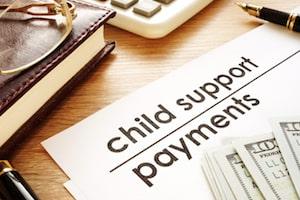Recent Blog Posts
What Issues Can Be Addressed in Post-Divorce Matters in Illinois?
 In some divorce cases, a couple may change their minds or disagree about certain issues even after the divorce is final. For example, if a person believes his or her ex-spouse violated the divorce decree, he or she can file a “post-decree motion” to enforce the terms of the divorce decree. Similarly, a change in one or both of the former spouses’ circumstances, such as a job loss or relocation, may require amendment or modification of the divorce decree, especially if a child is involved. These modifications or post-decree matters must be approved by a judge and should be fair to each spouse and in the best interests of the child.
In some divorce cases, a couple may change their minds or disagree about certain issues even after the divorce is final. For example, if a person believes his or her ex-spouse violated the divorce decree, he or she can file a “post-decree motion” to enforce the terms of the divorce decree. Similarly, a change in one or both of the former spouses’ circumstances, such as a job loss or relocation, may require amendment or modification of the divorce decree, especially if a child is involved. These modifications or post-decree matters must be approved by a judge and should be fair to each spouse and in the best interests of the child.
Parental Responsibilities and Child Support
The majority of post-decree matters deal with disputes over child-related issues. Parental responsibilities (formerly called child custody) and parenting time (formerly known as visitation) are determined during the initial divorce proceedings. However, changes may be necessary in some cases, such as when one parent would like to have more parenting time with his or her child.
How to Create a Summer Child Custody Schedule Following Divorce
 When parents choose to get a divorce, they will need to determine when children will spend time with each parent. While it is important to create and follow a regular parenting time schedule, parents can still choose to be flexible, and they may be able to agree to make changes to the schedule as needed. One common situation in which changes may be necessary occurs when the kids are out of school for holidays or summer breaks. During vacations, children have more free time to spend with each parent, and so parents should work together to determine a schedule that is in the best interests of the children.
When parents choose to get a divorce, they will need to determine when children will spend time with each parent. While it is important to create and follow a regular parenting time schedule, parents can still choose to be flexible, and they may be able to agree to make changes to the schedule as needed. One common situation in which changes may be necessary occurs when the kids are out of school for holidays or summer breaks. During vacations, children have more free time to spend with each parent, and so parents should work together to determine a schedule that is in the best interests of the children.
Scheduling Factors
In many divorces, children will reside with one parent for the majority of the time while spending some amount of parenting time with the other parent. However, some divorced couples are able to share equal or near-equal amounts of parenting time. While these arrangements provide consistency during the school year, schedules may need to be adjusted during the children’s summer vacation. When creating a summer parenting schedule, many factors come into play, including the children’s ages, the distance between the parents’ homes, parents’ work schedules, and plans for summer activities.
What Is the Process Followed in a Step-Parent Adoption in Illinois?
 Many people who get divorced often find love and happiness again in second marriages. A step-family, sometimes called a “blended” or “bonus” family, is a family in which at least one parent has children from a previous marriage or relationship. Blended families can be wonderful, especially when step-parents wish to adopt the children of their spouse as a way of making their family more “complete.” This is referred to as a related adoption, since one of the adoptive parents is related to the child who is being adopted. In fact, this is the most common form of adoption in North America.
Many people who get divorced often find love and happiness again in second marriages. A step-family, sometimes called a “blended” or “bonus” family, is a family in which at least one parent has children from a previous marriage or relationship. Blended families can be wonderful, especially when step-parents wish to adopt the children of their spouse as a way of making their family more “complete.” This is referred to as a related adoption, since one of the adoptive parents is related to the child who is being adopted. In fact, this is the most common form of adoption in North America.
A step-parent who adopts his or her stepchild agrees to become that child’s legal parent and to be fully responsible for the child until the child is an adult. Once the adoption is final, the other biological parent’s name is replaced with the adopting parent’s name on the child’s birth certificate. In some cases, the child’s name may also be changed on the birth certificate.
What Are the Benefits of Divorce Mediation?
 When a couple makes the decision to end their marriage, they may expect the divorce process to be hostile and contested. However, many aspects of a divorce can be settled between spouses in an amicable and respectful manner. One of the most effective ways to resolve the issues involved in a divorce case is through mediation.
When a couple makes the decision to end their marriage, they may expect the divorce process to be hostile and contested. However, many aspects of a divorce can be settled between spouses in an amicable and respectful manner. One of the most effective ways to resolve the issues involved in a divorce case is through mediation.
What Is Divorce Mediation?
Here in the United States, mediation is one of the most common methods of dispute resolution used by divorcing couples. Mediation is a process in which the two spouses work together with a third-party mediator to reach a divorce settlement that works for both spouses.
The benefits of mediating your divorce can be numerous. Most notably, mediation allows you to have some control over the decision-making process. This means that you and your spouse can try to work together to determine what is fair for both parties and reach solutions that ultimately may not have been possible through a standard, court-driven legal process. Because the divorce is settled privately between the two of you, there is no public record of the mediation. This allows for a level of privacy that is not possible in a standard divorce. Mediation may also allow you to complete the divorce process more quickly since you can reach a settlement without the need for multiple court hearings or a divorce trial.
How Can I Protect My Parental Rights as a Father?
 Every year, thousands of American couples make the difficult decision to pursue a divorce. A divorce can represent an opportunity to start a new and independent life. However, when children are involved, the divorce process can be incredibly tense. For fathers, a divorce can be frightening, considering the overwhelming statistical evidence that the majority of sole-custody parents are mothers. If you are looking to secure significant parental responsibilities as a father, you need quality legal assistance.
Every year, thousands of American couples make the difficult decision to pursue a divorce. A divorce can represent an opportunity to start a new and independent life. However, when children are involved, the divorce process can be incredibly tense. For fathers, a divorce can be frightening, considering the overwhelming statistical evidence that the majority of sole-custody parents are mothers. If you are looking to secure significant parental responsibilities as a father, you need quality legal assistance.
Securing Parenting Time and Parental Responsibilities
Due to recent changes in Illinois’ state law, child custody is now referred to as the “allocation of parental responsibilities.” While both parents will typically receive some amount of “parenting time” (as long as there are no issues regarding domestic abuse or other criminal activity), one parent may still be the primary residential parent. As a father, it is important to understand the steps you need to take in order to remain a primary figure in your child’s life, including:
Why Is a Prenuptial or Postnuptial Agreement Important?
 Every year, thousands of American couples file for divorce. Ending your marriage can be one of the most emotionally trying times in your life, but sometimes a divorce can come with more than just emotional challenges. In the aftermath of a divorce, many people are left with a complete lack of financial security. In order to avoid this, you may wish to enter into a prenuptial or postnuptial agreement that will ensure that your financial future will be intact, no matter what happens in your marriage. When preparing to secure the financial well-being of you and your family, it would be very wise to meet with a skilled family law attorney regarding a prenup or postnup.
Every year, thousands of American couples file for divorce. Ending your marriage can be one of the most emotionally trying times in your life, but sometimes a divorce can come with more than just emotional challenges. In the aftermath of a divorce, many people are left with a complete lack of financial security. In order to avoid this, you may wish to enter into a prenuptial or postnuptial agreement that will ensure that your financial future will be intact, no matter what happens in your marriage. When preparing to secure the financial well-being of you and your family, it would be very wise to meet with a skilled family law attorney regarding a prenup or postnup.
What a Prenuptial or Postnuptial Agreement Could Mean For You
A prenuptial agreement is a private agreement made between a couple prior to their marriage. The agreement will explicitly define the manner in which the couple’s assets will be divided in the event of a divorce, and it may address other issues, such as spousal maintenance. Here in the state of Illinois, prenuptial agreements are defined under the Illinois Uniform Premarital Agreement Act. According to Illinois state law, a prenup is only valid after both parties have signed and consented to the terms of the agreement.
Securing Child Support Payments from Your Former Spouse

When a couple begins the divorce process, it is normal to experience a wide range of emotions. On one hand, a divorce can represent a new opportunity at happiness. On the other, a divorce is a separation from someone you once thought you would spend the rest of your life with. When children are involved, a divorce can be especially emotional.
Child custody is one of the most important and contentious elements in a divorce. Custody (now called the allocation of parental responsibilities in Illinois) may be only part of the battle, as many spouses will attempt to avoid paying child support. If you are looking to secure child support payments from your former spouse, you need the help of a skilled and aggressive legal team.
Child Support Statistics
According to a U.S Census Bureau report titled “Custodial Mothers and Fathers and their Child Support,” there are approximately 13.4 million single custodial parents throughout the United States. Of all the custodial parents, less than 49 percent have a child support agreement in place. Unfortunately, many of those parents never receive the payments they need to provide for their children.
How Is Parenting Time Decided in Illinois Divorce Cases?
 When it comes to divorce cases, some of the most contentious issues that can arise are those pertaining to a couple’s children. Before you are able to conclude your divorce, the court will want you and your soon-to-be ex to submit a mutually-agreed-upon, written parenting plan. This parenting plan should contain information about parenting time schedules, who has what decision-making rights, dealing with the child’s school holidays, and other issues pertaining to the child. If both parents cannot come to an agreement on a parenting plan, the court will make the parenting plan decisions for the parents.
When it comes to divorce cases, some of the most contentious issues that can arise are those pertaining to a couple’s children. Before you are able to conclude your divorce, the court will want you and your soon-to-be ex to submit a mutually-agreed-upon, written parenting plan. This parenting plan should contain information about parenting time schedules, who has what decision-making rights, dealing with the child’s school holidays, and other issues pertaining to the child. If both parents cannot come to an agreement on a parenting plan, the court will make the parenting plan decisions for the parents.
Determining Factors
Illinois family law courts start out with the presumption that each parent is a fit parent and that no restrictions should be placed on his or her parenting time, unless it is found that the parenting time would endanger the child’s physical, mental, moral, or emotional health. All decisions pertaining to the child need to be based on the child’s best interests. A number of factors are considered when determining parenting time, including:
How to Calculate Illinois Child Support Payments
 Sometimes, even the so-called “simplest” divorces, where the parties have no children, can be stressful and tedious. But if you add children-related issues in a divorce, you have an entirely different set of issues which must be addressed before you can finalize your divorce. One of those issues is child support, which is a very important subject for many divorcing couples, especially if one parent has the children more often than the other. Child support is the financial obligation that both parents have to their children, and it is important that each parent pays his or her fair share.
Sometimes, even the so-called “simplest” divorces, where the parties have no children, can be stressful and tedious. But if you add children-related issues in a divorce, you have an entirely different set of issues which must be addressed before you can finalize your divorce. One of those issues is child support, which is a very important subject for many divorcing couples, especially if one parent has the children more often than the other. Child support is the financial obligation that both parents have to their children, and it is important that each parent pays his or her fair share.
Calculating the Basic Child Support Obligation
First, each parent’s monthly net income is calculated. Then, both of the parents’ net incomes are added together. The Illinois Department of Healthcare and Family Services (IDHFS) is the governing body that deals with child support calculations, and they periodically publish guidelines for calculating child support based on parents’ combined income. The IDHFS’s basic child support obligation table lists a child support obligation amount that corresponds with parents’ combined income and the number of children they have. This number is what the state of Illinois considers to be the total amount that parents at that income level are expected to provide for their children.
4 Reasons Why Your Illinois Prenuptial Agreement May Be Found To Be Invalid
 Divorces can sometimes be messy, long, and complicated. As a result, prenuptial agreements have become increasingly popular for many couples, since they can help avoid some of the issues that can make divorces more difficult. Contrary to what movies or television shows might have us believe, prenuptial agreements can be utilized by more than just the uber-wealthy. These agreements can be helpful for any couple, because they allow spouses to make decisions about how certain matters will be handled in the event of a divorce.
Divorces can sometimes be messy, long, and complicated. As a result, prenuptial agreements have become increasingly popular for many couples, since they can help avoid some of the issues that can make divorces more difficult. Contrary to what movies or television shows might have us believe, prenuptial agreements can be utilized by more than just the uber-wealthy. These agreements can be helpful for any couple, because they allow spouses to make decisions about how certain matters will be handled in the event of a divorce.
While a prenuptial agreement can be beneficial for you and your spouse, it must follow specific legal rules about its content and format. If you do not follow these rules, your prenuptial agreement may not hold up in court. Here are a few reasons why your agreement may be found to be invalid in court:

















